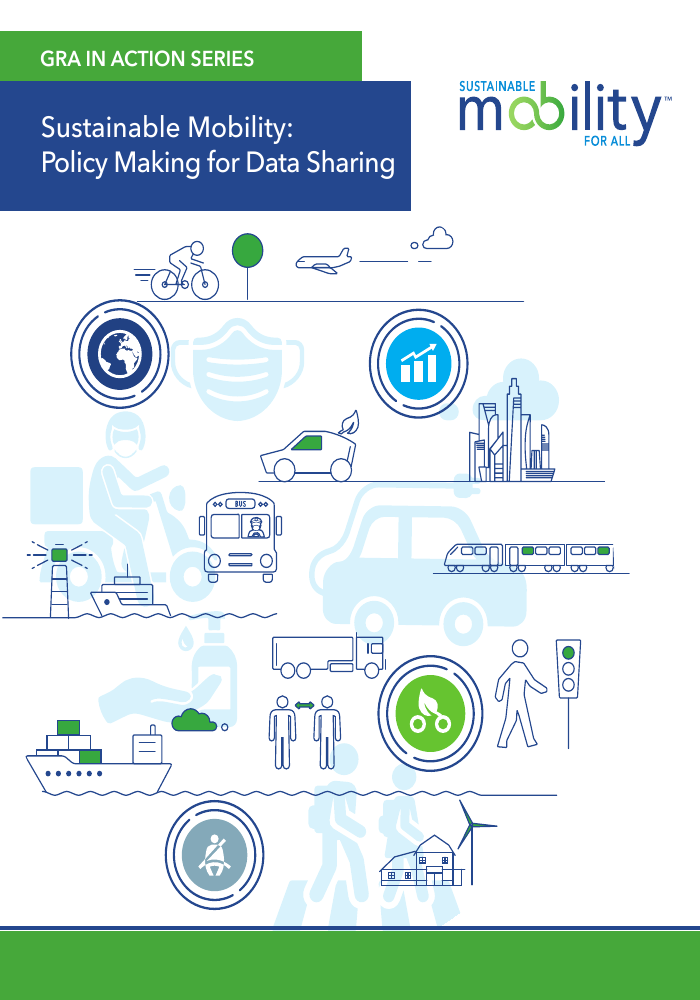
The demand for mobility will grow significantly in the coming years, but our urban transportation systems are at their limits. Increasing digitalization and data sharing in urban mobility can help governments and businesses to respond to this challenge and accelerate the transition toward sustainability. There is an urgent need for greater policy coherence in data-sharing ecosystems and governments need to adopt a more collaborative approach toward policy making.
With well-orchestrated policies, data sharing can result in shared value for public and private sectors and support the achievement of sustainability goals. Data-sharing policies should also aim to minimize risks around privacy and cybersecurity, minimize mobility biases rooted in race, gender and age, prevent the creation of runaway data monopolies and bridge the widening data divide.
This report outlines a global policy framework and practical guidance for policy making on data sharing. The report offers multiple case studies from across the globe to document emerging good practices and policy suggestions, recognizing the hyperlocal context of mobility needs and policies, the nascent state of the data-sharing market and limited evidence from regulatory practices.
The mobility data-sharing policy framework embodies the principles presented in the foundational WBCSD report Enabling data sharing: Emerging principles for transforming urban mobility.

